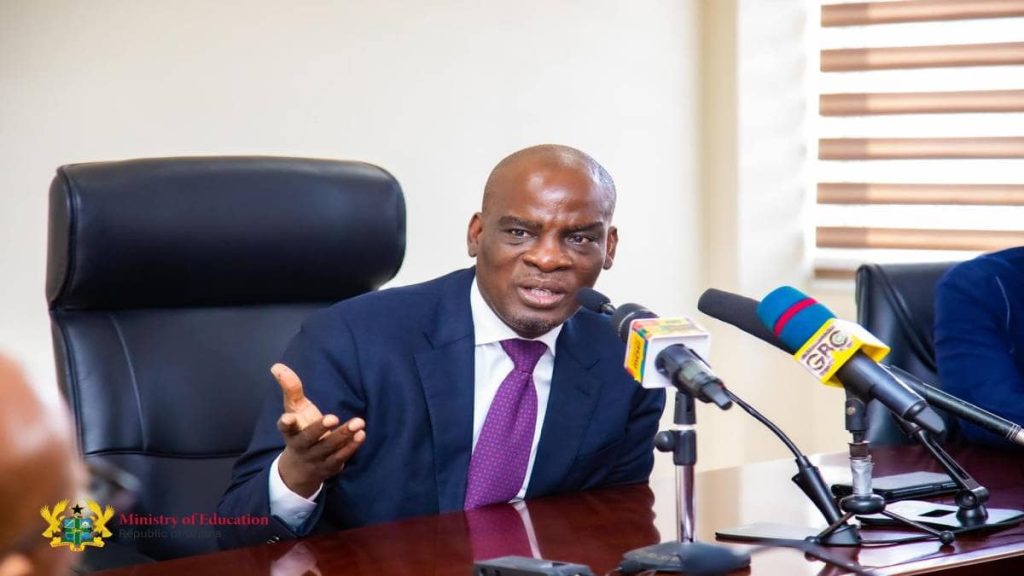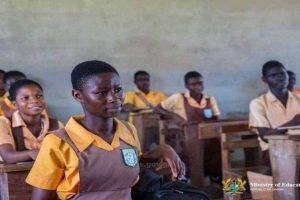Local languages now compulsory for teaching in all schools – MoE

The Minister of Education, Haruna Iddrisu, has directed the Director-General of the Ghana Education Service (GES), Professor Ernest Kofi Davis, to make local language compulsory for teaching or instruction in all pre-tertiary schools across the country.
The Education Minister made the announcement on October 24, 2025, at the Accra College of Education during the launch of Free Tertiary Education for Persons with Disabilities, a huge step for inclusive learning.
Speaking at the launch of the Free Tertiary Education for Persons with Disabilities in Accra on Friday, October 24, 2025, Mr. Iddrisu said the new directive takes immediate effect under the supervision of the Ghana Education Service (GES).
The Minister in Charge of Education said the decision to use local languages for teaching is aimed at removing the language barrier in education and improving learning outcomes at the basic level, and helping children understand lessons better in the languages they speak and know.
He explained that a child learns best in a familiar language and that it is unfair for Ghanaian children to begin their education entirely in English when they come from homes where local languages are spoken.
“The story is told of a young girl whose teacher was teaching in English at an early stage, and the child struggled to understand. That child was not born into an English family but a proud Ghanaian family. Every Ghanaian child deserves to learn in a language they understand,” the Minister said.
The Minister for Education indicated that the Ghana Education Service will ensure strict enforcement of the policy to make sure every teacher at the basic level uses the appropriate Ghanaian language of instruction.
This comes after the Minister of Education, Haruna Iddrisu, reaffirmed the central government’s commitment to strengthening the use of local languages as a key driver of educational success in basic education.
According to him, learning in local languages offers a strong foundation for lifelong learning, calling for more investment in early childhood education to give every Ghanaian child the best possible start.
In other news, the Ga Mantse, King Tackie Teiko Tsuru II, has called for Ga and Dangme to be made compulsory subjects in all public and private basic schools across Ga and Dangme communities starting next academic year.
Speaking at the 85th anniversary celebration of Odorgonno Senior High School, His Royal Majesty King Tackie Teiko Tsuru II said, “It has become our responsibility to bring back Ga culture and language into our classrooms.”
King Tackie Teiko Tsuru II highlighted profoundly in his speech the value of culture. “Our culture is who we are; it is the base of ethnicity; it is our heritage brought to the fore, making da emand of us not to lose it.”
Raising concern about the steady decline of Ga and Dangme, especially among the youth, the Ga King said, “Language is the vessel of culture. To lose it is to lose our story, our values, and our identity.”
Making the languages compulsory in government and private schools, Ga Mantse, King Tackie Teiko Tsuru II explained, would reconnect younger generations to their roots while instilling pride and belonging.
The Ga Mantse further noted that mother-tongue instruction would improve academic performance.
“Teaching Ga and Dangme are not only about culture; it is about creating well-rounded, confident, and high-achieving students.
“Our children will learn better when they begin with what they know best—their own language,” he said.
He called on the Ministry of Education and the Ghana Education Service (GES) to enforce the directive by recruiting and training teachers and providing adequate textbooks and audio-visual learning materials.
“This is a cultural necessity, not just an educational reform. If we do not act now, the risk of losing our language, and with it, our identity, will only grow,” the Ga mantse cautioned.
His Royal Majesty added, “We want to partner with the Ministry of Education to integrate the Ga language in our GES curriculum”, he affirmed, calling for a collective effort to ensure that students learn about their roots.



